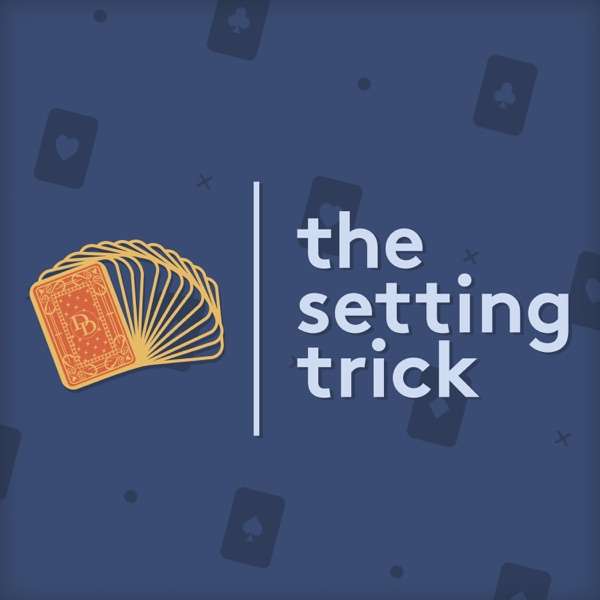Welcome to Dev Game Club, where this week we begin our series playing Chrono Trigger, the beloved 1995 SNES classic. We cover a lot of ground with this one, including the story, some of the combat, the way the game pays attention to you... all sorts of topics for a corker of a game. Dev Game Club looks at classic video games and plays through them over several episodes, providing commentary.
Sections played: Up to The End of Time!
Podcast breakdown: 0:51 Chrono Trigger 1:31:07 Break 1:31:41 Feedback
Issues covered: COVID-19, SpaceWorld and E3, the year 1995 in games, the creative team, character design in hand-drawn art and intro, the Dream Team, the top-down look of a 16-bit era game, companions following around, combining the background and the foreground in the PlayStation era, the quality of the art direction, running right into combat vs modal play, lack of random battles, choice of battle mode, Active Time Battles, differences between active and wait styles, the overworld and entering spaces, influence of other games, the basic menu presentation, the "Sakaguchi style" and its culmination, being able to approach things fresh, getting on with it, the bouncy playfulness of childhood, Chosen One tropes, Mom waking you up trope, relatability, the princess incognito trope, mixing up a trope, feeling more surprises in FFIX, short-term goals vs long-term/Chosen One goals, signposting the Day of Lavos, whether or not we're able to choose to come back, having another JRPG pay homage, seeing the change in various timelines, enjoying our time with the Frog, the evil Chancellor, the Cathedral and Yakra's minions, having a moment of talking with the monsters, the juxtaposition of drama/horror and comedy, space for Japanese vs letters, returning to the present with Nadia and having a trial, referring back to things you did at the fair, the designer noticing you, the game is safe, the theme of our choices mattering for our future, wanting to be the paladin, the courtroom as setting, escaping the dungeons, a little scene in the warden's office and telegraphing importance to the player, possibly a stealth mechanic, the Dragon Tank on the bridge, affine transformations in the background, using atmospherics for setting tone, the computer telling the tale of Lavos, recruiting Robo, having to pass through Lab 32, the flamboyant Johnny, racing Johnny in Mode 7 to the end of the Lab, Johnny the Biketaur, Robo getting beat up by the other robots, the valiant robot who sacrifices himself for you, Brett gives Tim a hard time for ST: Nemesis, humanizing the non-human characters, gunbows and floral horrors, Tim's big hike, renaming in the new translation, the difficulties of translation, localization as its own art form, adding difficulty with IPs, machine translation, recognizing the great translators, testing your focus as much as your execution, repetitive learning, playground of moves, looping in failure to the style of play, board games and failure, higher highs, rubbing death in your face, worsening the traditional model, obfuscatory, dealing with people who wave their brains around, being open to looking foolish, "Caveman Tim" and being self-deprecatory to diminish status differences, asking simple questions repetitively, active listening, reflection as a means to learning in the moment, being in the moment, being okay with vulnerability.
Games, people, and influences mentioned or discussed: Ted Woolsey, Tom Slattery, SNES, Dark Forces, TIE Fighter, LucasArts, Full Throttle, The Dig, Phantasmagoria, I Have No Mouth and I Must Scream, Warcraft, Command & Conquer, N64, Dracula X (Castlevania: Rondo of Blood), Twisted Metal, Super Mario World 2: Yoshi's Island, Super Bomberman 3, Kirby's Dreamland, Earthbound, Dragon Quest (series), Trials of Mana, Tales of Phantasia, Hironobu Sakaguchi, Final Fantasy (series), Yuji Horii, Akira Toriyama, Dragon Ball, Shonen Jump, Masato Kato, Xenogears, PlayStation, Shiren the Wanderer, Ninja Gaiden, Yasunori Mitsuda, Nobuo Uematsu, SquareSoft, Legend of Zelda: Link to the Past, Pokemon, Kingdom Hearts, GameBoy, Ni No Kuni, Ultima (series), Breath of the Wild, Skyrim, The Witcher (series), John Romero, Fallout, Wasteland, Enix, Activision/Blizzard, Dragon Warrior, Dungeons & Dragons, Jason Schreier, Chrono Cross, BioWare, Ocarina of Time, Aladdin, Diablo, Dragon Age, Baldur's Gate, Park Chan-wook, Bong Joon Ho, Day of the Tentacle, Tim Schafer, Dave Grossman, Mass Effect, Super Metroid, Super Castlevania IV, Wall-E, Shenmue, Mario Kart, The Mandalorian, Planetfall, Isaac Asimov, Star Trek: Nemesis, The Pacific Crest Trail, Cheryl Strayed, James Roberts, Stretch Armstrong, Boss Fight Books, Michael P. Williams, Republic Commando, Star Wars, Cyrano de Bergerac, Roxane, Douglas Hofstadter, Un Ton Beau de Marot, Love in the Time of Cholera, Edith Grossman, Margaret Jull Costa, Odyssey, Emily Wilson, Warren Linam-Church, Jeff Morris, Civilization, Mario 64, Dark Souls, Demon's Souls, Super Meat Boy, Beyond Earth, DOOM, Batman: Arkham Knight, Soren Johnson, Maas Neotek Proto, The Turbo Encabulator, Obduction, MYST, Metroid Prime II: Echoes, Bloodstained: Ritual of the Night.
Next time: Up to The Magus's Castle
Errata: Brett said RPGs when clearly he meant RTSes. We regret the error. (It's Tim's fault.)
Links: John Romero on Chrono Trigger
Tim's Charity Webpage
Pacific Crest Trail Association
Big City Mountaineers
The Turbo Encabulator
Anime Intro Movie
Twitch: brettdouville, instagram:timlongojr, @brett_douville, @timlongojr, and @devgameclub DevGameClub@gmail.com

 Our TOPPODCAST Picks
Our TOPPODCAST Picks  Stay Connected
Stay Connected







